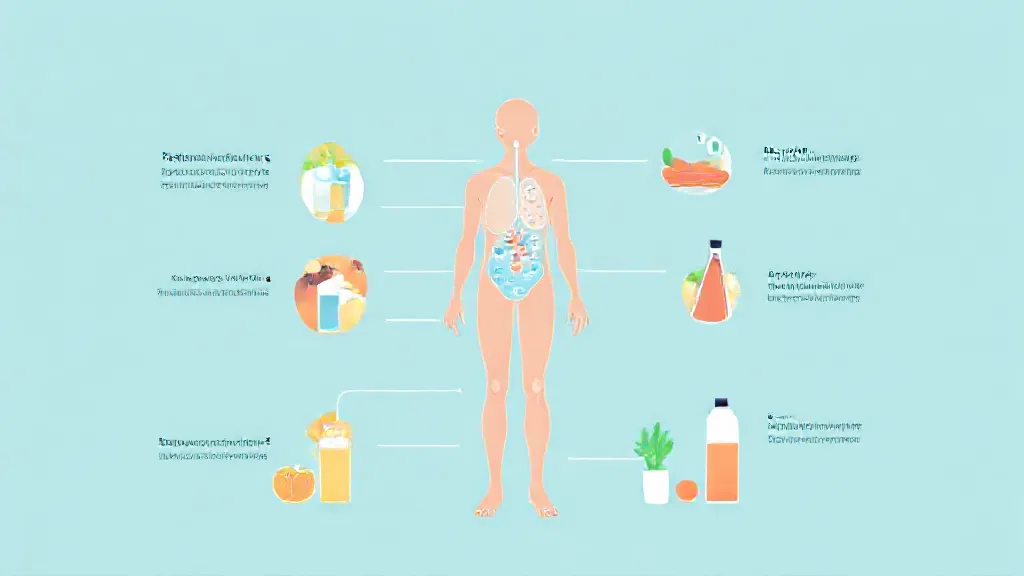Dehydration occurs when the body loses more fluids than it takes in, leading to an imbalance that can affect various physiological functions. Understanding how the body recovers from dehydration is essential for maintaining optimal health, especially in situations where fluid loss is significant, such as during intense exercise, illness, or high temperatures. The recovery process involves several mechanisms that work together to restore fluid balance and ensure that the body functions properly.
The Importance of Hydration for Body Functions
Water plays a critical role in almost every bodily function. It is essential for regulating body temperature, transporting nutrients, and removing waste. The human body is composed of approximately 60% water, and this percentage can vary depending on age, sex, and body composition.
When dehydration occurs, the body prioritizes essential functions, leading to symptoms such as fatigue, dizziness, and confusion. Recognizing these signs early is crucial for initiating recovery.
Physiological Responses to Dehydration
When dehydration occurs, the body triggers various physiological responses.
The hypothalamus detects changes in blood osmolarity and signals the pituitary gland to release antidiuretic hormone (ADH). This hormone prompts the kidneys to conserve water, reducing urine output. Additionally, the body may experience a decrease in blood volume, which can lead to increased heart rate and blood pressure as the cardiovascular system works harder to maintain adequate blood flow to vital organs.
Rehydration Strategies: What to Drink
To recover from dehydration, it is essential to replenish lost fluids. Water is the most straightforward and effective option, but in cases of severe dehydration, electrolyte solutions may be necessary. These solutions contain essential minerals such as sodium, potassium, and magnesium, which help restore the body's electrolyte balance.
Sports drinks can also be beneficial during prolonged physical activity, as they provide both hydration and energy.
The Role of Electrolytes in Recovery
Electrolytes are minerals that carry an electric charge and play a crucial role in maintaining fluid balance, muscle function, and nerve signaling. When dehydrated, the loss of electrolytes can lead to muscle cramps, weakness, and other complications.
Rehydrating with electrolyte-rich beverages helps restore these vital minerals, facilitating a more effective recovery process. Foods such as bananas, oranges, and leafy greens are also excellent sources of electrolytes.
Restoring Fluid Balance: Time and Patience
Recovering from dehydration is not instantaneous; it takes time for the body to restore its fluid balance.
The rate of recovery depends on the severity of dehydration and the individual's overall health. Mild dehydration can often be resolved within a few hours with proper fluid intake, while more severe cases may require medical intervention and intravenous fluids. It is essential to listen to your body and rehydrate gradually to avoid overwhelming the system.
Preventive Measures Against Dehydration
Preventing dehydration is key to avoiding the negative effects associated with fluid loss. Staying hydrated throughout the day, especially during hot weather or physical exertion, is crucial. It is recommended to drink water regularly, even if you do not feel thirsty.
Monitoring urine color can also help gauge hydration levels; pale yellow indicates proper hydration, while dark yellow suggests dehydration.
When to Seek Medical Attention
In some cases, dehydration can lead to serious health complications requiring medical attention. Symptoms such as extreme thirst, dry mouth, rapid heartbeat, confusion, and fainting should not be ignored.
If these symptoms persist despite rehydration efforts, it is essential to seek medical help promptly to prevent further complications.
Conclusion: The Path to Recovery
Understanding how the body recovers from dehydration is vital for maintaining health and well-being. By recognizing the signs of dehydration, employing effective rehydration strategies, and taking preventive measures, individuals can support their bodies in recovering from fluid loss.
Remember, hydration is not just about drinking water; it is about maintaining a balance that supports overall health and vitality.
